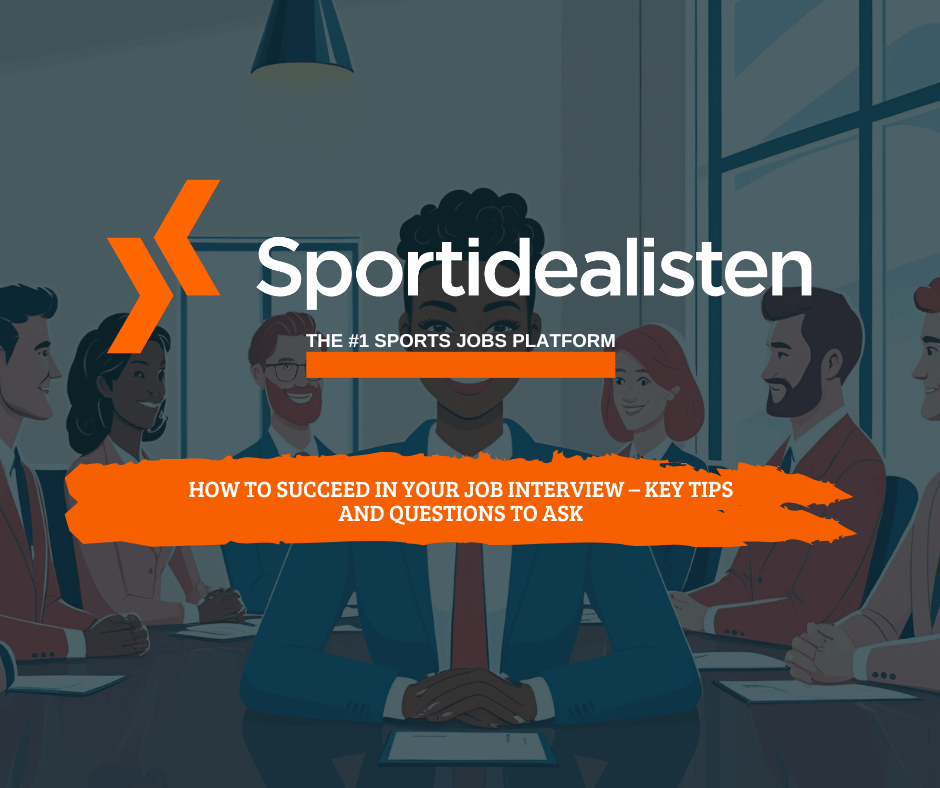As 2025 rolls in, there’s no better time to set your sights on a fresh start in the sports industry. Whether you’re a recent graduate or a seasoned professional, landing a job in this dynamic field requires more than passion—it takes preparation, strategy, and an awareness of the latest trends shaping the industry. From acing your first day to staying ahead of 2025’s workplace innovations, here’s your ultimate guide to starting strong and thriving in your new role 2025.
Day one: Making an unforgettable first impression
Introduce yourself with impact
First impressions matter—especially in the sports industry, where teamwork and networking are key. Whether you’re meeting in person or remotely, prepare a compelling elevator pitch that highlights your background, role, and passion for the industry. For example:
“Hi, I’m Jakob, the new Marketing manager. I’m thrilled to bring my experience in digital campaigns and my love for sports to our team. I can’t wait to collaborate and help elevate our brand.”
Rehearse this until it feels natural and adjust as needed to suit different audiences.
Proactively connect
Don’t wait for formal introductions. Take the initiative to send quick emails or Slack messages to your new teammates:
“Hi [Name], I’m Jakob, the new marketing manager. I’m excited to work with you on [specific project or shared task]. Looking forward to connecting!”
Building rapport early fosters collaboration and ensures your colleagues remember you.
Observe and adapt
Each workplace has its unique culture, especially in sports where schedules can be as unpredictable as the games themselves. Take note of communication styles, meeting etiquette, and work rhythms. Are Monday morning huddles standard? Do teams use Slack for quick updates or prefer email or plain physical meetings? Tailor your approach accordingly.
First week: Building a strong foundation
Align on expectations
Clear expectations are the cornerstone of success. Schedule a meeting with your manager to discuss:
- Key priorities for your first few weeks
- Metrics for success
- Preferred communication methods (email, Slack, Zoom, etc.)
- Insights into the team’s goals and your role’s contribution
These conversations set the stage for a productive relationship.
Master the tools of the trade
Familiarize yourself with industry-specific tools and technologies. From performance analysis software to social media platforms driving fan engagement, knowing your tech is vital. Ask for access to resources, training materials, or internal guides early on.
Stay organized
Create a checklist of onboarding tasks: setting up accounts, attending orientation sessions, and accessing key documents. Staying organized ensures you hit the ground running.
First month: Thriving in your new role
Build your network
Sports is a relationship-driven industry. Extend your networking beyond your immediate team. Schedule virtual or in-person coffee chats with colleagues across departments to learn about their roles and how you can collaborate.
Contribute early wins
Look for quick wins that showcase your value. Identify areas where you can make an immediate impact—whether it’s streamlining a process, proposing a fresh idea, or taking initiative on a project.
Stay visible
Remote or hybrid work can make visibility a challenge. Schedule regular check-ins with your manager and share updates on your progress. Use team meetings to highlight your contributions without overshadowing others.
5 Trends shaping the sports industry in 2025
To excel in your new role, stay informed about the trends redefining the sports landscape this year:
1. Tech-Driven Fan Engagement
Virtual reality, augmented reality, and AI-powered platforms are revolutionizing how fans interact with sports. Be ready to leverage these technologies to enhance marketing campaigns, game-day experiences, or team operations.
2. Sustainability Initiatives
From eco-friendly stadiums to green supply chains, sustainability is a growing priority. Showcase your knowledge or interest in these initiatives to align with industry values.
3. Data Analytics Dominance
Whether it’s player performance or fan behavior, data analytics continues to drive decision-making. Familiarity with tools like Tableau, Power BI, or specific sports analytics software can give you a competitive edge.
4. Diversity, Equity, and Inclusion (DEI)
Sports organizations are increasingly focused on DEI efforts. Engage in initiatives that promote inclusivity, both internally and within the broader community.
5. Health and Wellness
Mental health and wellness are taking center stage for athletes and employees alike. Understand how these priorities influence workplace policies and team dynamics.
Long-term success: Becoming a star player
Track your achievements
Keep a record of your accomplishments, from campaigns launched to revenue milestones achieved. These metrics will not only boost your confidence but also strengthen your case for promotions or raises.
Stay curious
The sports industry evolves rapidly. Attend webinars, enroll in courses, or join professional associations to stay ahead.
Balance ambition with self-care
The fast-paced nature of sports can be demanding. Set boundaries and prioritize self-care to avoid burnout. Whether it’s a morning run, meditation, or dedicated family time, find what keeps you grounded.
Build for the future
Think beyond your current role. Seek mentorship, explore cross-department opportunities, and position yourself for long-term growth within the organization.
Final thoughts
Starting a new job in the sports industry at the beginning of 2025 is an exciting opportunity to shape your career in one of the most dynamic fields. With these strategies and an eye on emerging trends, you’re equipped to make a lasting impression and thrive. Here’s to a winning year ahead!
If you liked this article, may want to read these:
LinkedIn Profile Optimization and Job Search Strategies in Sports






4 thoughts on “Kickstart Your Career in the Sports Industry: New Year, New Job, New Trends for 2025”